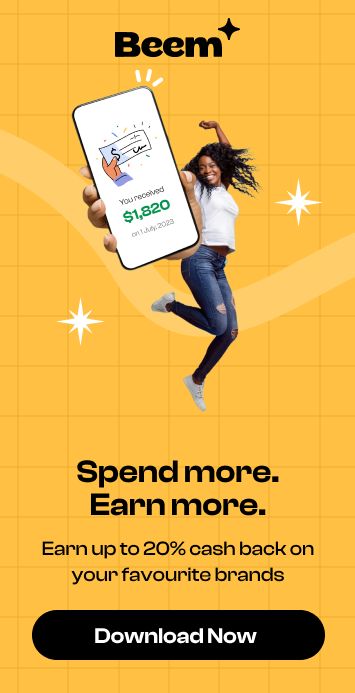Unverified users on Cash App can conduct limited transactions, capped at $250 per week for both sending and receiving funds. To enhance the experience with improved functionality and safety measures, providing a Social Security Number (SSN) is recommended.
Verifying your identity with an SSN unlocks higher transaction limits and contributes to a more secure financial environment. While unverified users can engage in basic transactions, the $250 weekly restriction may be limiting for those with more extensive financial needs.

How to Send Money on Cash App Without SSN?
Unfortunately, there’s no way to fully use Cash App without an SSN. Here’s why and what your options are:
Why Cash App Requires SSN
- Regulations: Cash App, like other financial service providers, is obligated by law (Know Your Customer regulations) to verify user identities. This helps reduce fraud, money laundering, and other financial crimes.
- Full Features: Without an SSN, your Cash App account will be severely restricted.
What You CAN do Without an SSN
- Create an Account with Limited Use:
- You can download Cash App and set up an account.
- You’ll receive a $Cashtag (your unique username)
- You can SEND limited amounts of money per week with funds already in your linked bank account.
- You can RECEIVE money from others.
- Restrictions You’ll Encounter:
- Limited sending and receiving amounts ($250 send per week, $1000 receive per month)
- Can’t get a Cash App Card
- Cannot invest in stocks or Bitcoin
- Cannot request money
What’s an SSN?
A Social Security Number (SSN) is a nine-digit identification number issued by the Social Security Administration in the United States. Primarily designed for tracking individuals for Social Security benefits, the SSN has become a universal identifier for various purposes, such as taxation, employment, and financial transactions.
It plays a crucial role in verifying one’s identity and is often required for opening bank accounts, obtaining credit, and engaging in other financial activities.
The unique numerical combination helps prevent identity theft and fraud, ensuring that individuals are accurately linked to their personal and financial information.
The SSN is a vital component of the U.S. identity infrastructure, used across various sectors to establish and confirm an individual’s identity.
Why does Cash App need an SSN?
Cash App requests a Social Security Number (SSN) primarily for user verification and regulatory compliance. When users initially set up their Cash App accounts, they often start with a limited weekly transaction amount, in this case, $250.
Verifying personal information, including the SSN, is crucial to unlock higher transaction limits and ensure a secure and compliant financial environment. The SSN is a key identifier, preventing fraud, money laundering, and other illicit activities.
Cash App employs the SSN to authenticate users’ identities, comply with financial regulations, and maintain the platform’s integrity.
The seven-day waiting period for increased transaction limits encourages users to verify their information, including providing their SSN.
While users technically can refrain from providing their SSN, doing so limits their ability to complete transactions exceeding the initial $250 limit.
Ultimately, the request for an SSN on Cash App is rooted in the platform’s commitment to user security, regulatory adherence, and preventing unauthorized or suspicious financial activities.
What Are Cash App Limits If You Don’t Use SSN?
If you don’t provide a Social Security Number (SSN) on the Cash App, your account will be considered unverified, resulting in transaction limits.
Unverified users can send and receive up to $250 per week. This restriction is in place to comply with regulatory standards and enhance security. While this limit allows for basic transactions, providing an SSN enables complete verification, unlocking higher transaction limits, and access to additional features such as direct deposit, check deposit, and borrowing money.
Users should know these limits to make informed decisions based on their financial needs. They should also consider the advantages of providing an SSN for a more comprehensive and flexible experience on the Cash App platform.
How to Check your Current Cash App Limits?
To check your current Cash App limits, open the app and navigate to your profile by clicking on your profile picture in the upper right corner. Scroll to the “Limits” button to view your current transaction restrictions.
To increase these limits, you must verify additional information, including your legal name, date of birth, and the last four digits of your Social Security Number (SSN).
Cash App explicitly states that this is the sole method for limit enhancement. Despite claims in other articles suggesting alternative approaches, Cash App confirms that providing the required information is the only legitimate means to raise your transaction limits.
Can you Use a Fake SSN on Cash App?
Using a fake Social Security Number (SSN) on Cash App is not advisable and could have serious consequences.
While some users may attempt to bypass restrictions by providing false information, Cash App takes a day or two to verify user details through credit bureaus, ensuring authenticity. Federal regulations govern financial platforms like Cash App, making using a fake SSN successfully impossible.
Attempting to do so may result in permanent bans as it constitutes fraud, a federal offense.
For American users, using someone else’s SSN is particularly risky, carrying potential legal consequences, including up to 15 years of imprisonment. Providing accurate personal information to avoid these issues and ensure the Cash App platform’s secure and legal use is essential.
Why Does Cash App Ask for SSN When Sending Money?
Cash App requests a Social Security Number (SSN) when sending money for several important reasons:
Regulatory Compliance: Financial institutions, including payment platforms like Cash App, are subject to stringent regulations. Collecting SSNs is a common practice to comply with anti-money laundering (AML) and know-your-customer (KYC) regulations mandated by government authorities.
Identity Verification: The SSN is a unique identifier linked to an individual’s identity. Verifying users through their SSNs helps prevent fraudulent activities, ensuring that users are who they claim to be.
Security Measures: Requiring an SSN adds an extra layer of security to the platform. It helps safeguard against unauthorized transactions, identity theft, and other fraudulent activities that may compromise the financial system’s integrity.
Transaction Monitoring: SSNs assist in monitoring and tracking financial transactions, contributing to the detection and prevention of suspicious or illegal activities on the platform.
Cash App aims to create a secure and compliant financial environment by requesting SSNs, aligning with legal standards, and fostering a trustworthy user experience.
Conclusion
Using Cash App without providing a Social Security Number (SSN) is possible but comes with limitations on transaction amounts.
While the platform offers a workaround for unverified users, providing an authentic SSN is recommended for enhanced functionality, higher transaction limits, and a more secure financial experience.
It is crucial to adhere to Cash App’s terms, avoid attempting to use fake SSNs, and understand the potential legal consequences associated with fraudulent practices. If you ever decide Cash App isn’t right for you, and you are a verified user, you can easily delete your Cash App account through the app’s settings.
However, for a seamless, reliable, and legally compliant engagement with the Cash App platform, following the recommended verification process is best.
Why does Cash App typically require an SSN for transactions?
Cash App typically requires an SSN for transactions to comply with regulatory standards, verify user identity, and prevent fraudulent activities.
Is it safe to send money on the Cash App without providing my SSN?
It is safe to send money on Cash App by providing your SSN, as the SSN is a crucial component for user authentication and financial security on the platform.
How can I increase my transaction limits on the Cash App without providing an SSN?
Increasing transaction limits on Cash App without providing an SSN may not be possible, as the SSN is often a critical factor in determining user eligibility and ensuring regulatory compliance for higher transaction thresholds.




























